Big Red Book
Celebrating television's This Is Your Life
Pat SEED MBE (1928-1984)
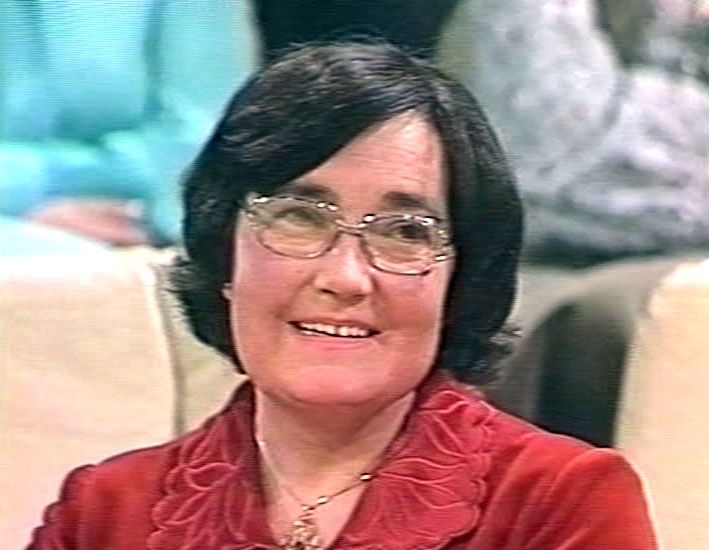
THIS IS YOUR LIFE - Pat Seed, journalist and campaigner, was surprised by Eamonn Andrews at the New London Theatre, having been led to believe she was there for an interview about her newly published book.
Pat, who was born in Salford, became a reporter with her local newspaper after leaving school, before volunteering as a driver with the Auxiliary Territorial Service towards the end of the Second World War. After moving to Garstang in Lancashire at the age of 21 she returned to journalism, finding work with the local newspapers.
In 1976, while working on the Manchester Guardian, she was diagnosed with cancer and given six months to live. As a patient of Manchester's Christie Hospital she was astonished to learn that the specialist cancer centre would have to wait five years before they could afford a CT scanner. Pat set up the pioneering and hugely successful Pat Seed Appeal Fund, which was the first of its kind, with nationwide support raising over £1 million.
"I gather that first print isn't going to make it's edition!"
programme details...
- Edition No: 522
- Subject No: 519
- Broadcast date: Wed 28 Nov 1979
- Broadcast time: 7.00-7.30pm
- Recorded: Wed 14 Nov 1979
- Venue: New London Theatre
- Series: 20
- Edition: 1
- Code name: North
on the guest list...
- Bobby Charlton
- Paul Daniels
- Russell Harty
- Norah Whittingham
- Jack Benson
- Keith Daniels
- Right Reverend Anthony Hoskyns-Abrahall
- Jean Rook
- Dr Godfrey Hounsfield
- Silver Keynotes Band
- Stephen Bilynskyj
- Geoff - husband
- Helen - daughter
- Michael - son
- Sam - father
- Gladys - mother
- Hilda - aunt
- Edith - aunt
- Ian - cousin
- Barbara - Ian's wife
- Elaine - goddaughter
- Beryl Acton
- Tess Pickford
- Marie Calvert
- Elsie Eisold
- Vera Fionn
- Doreen Woolley
- Dr Brian Eddleston
- Tony - cousin
- Maria - Tony's wife
- Martin - Tony's son
- Samantha - Tony's daughter
- Gerard - son-in-law
- Victoria - granddaughter
- Ronnie Boy - dog Filmed tributes:
- Ken Dodd
- pupils from Northfold County Infants School, Cleveleys
- William Roache
- Julie Goodyear
production team...
- Researcher: Vivien Lind
- Writers: Tom Brennand, Roy Bottomley
- Directors: Royston Mayoh, Terry Yarwood
- Producer: Jack Crawshaw
- names above in bold indicate subjects of This Is Your Life
the unsung heroes
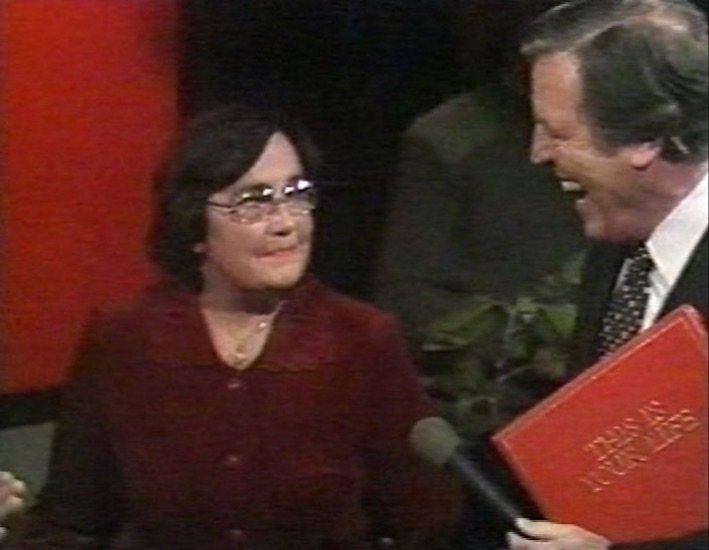
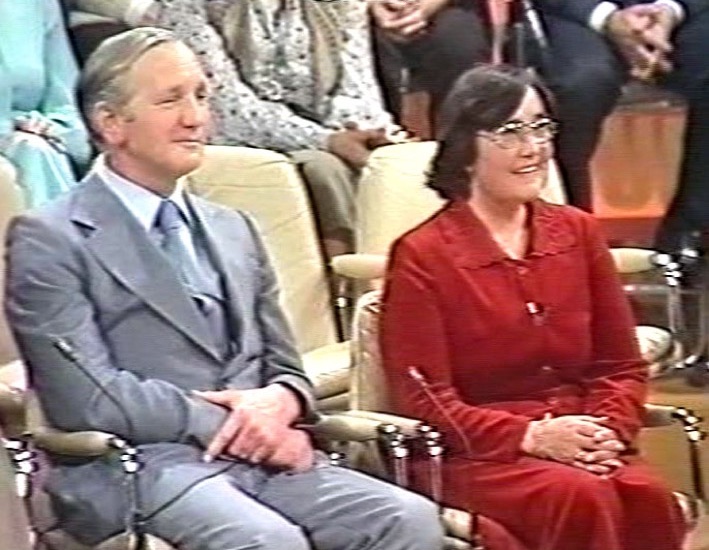
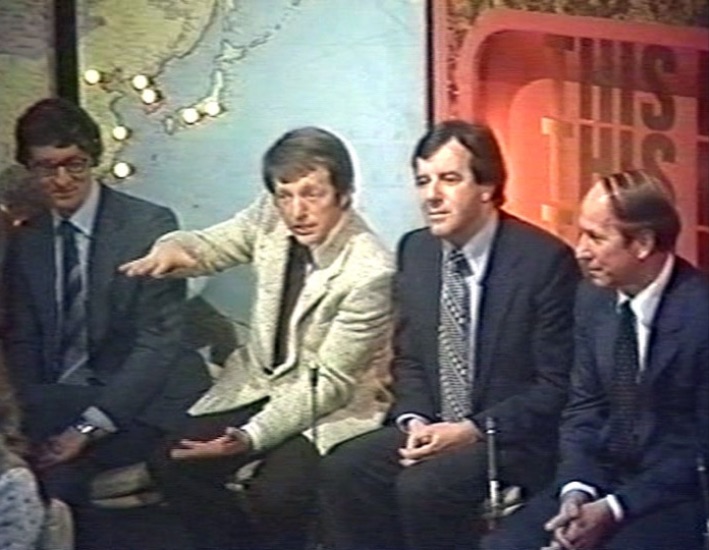
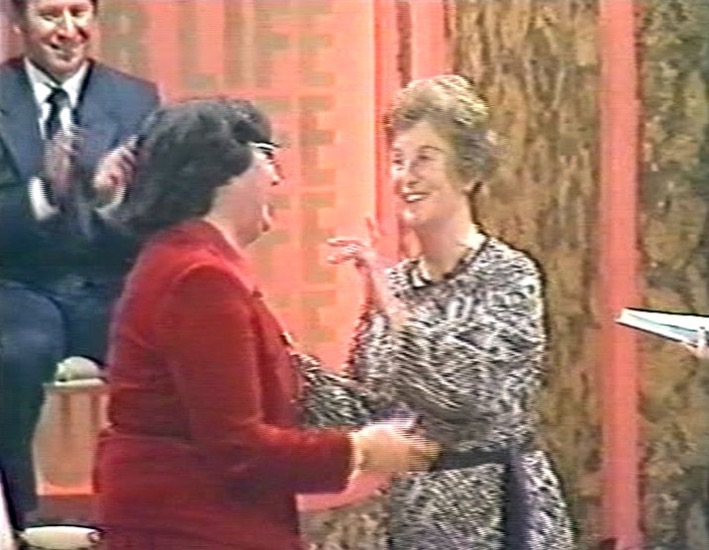
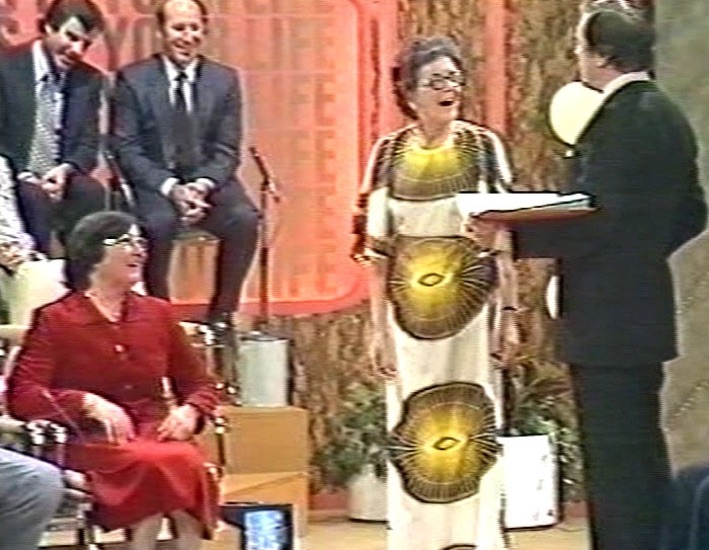
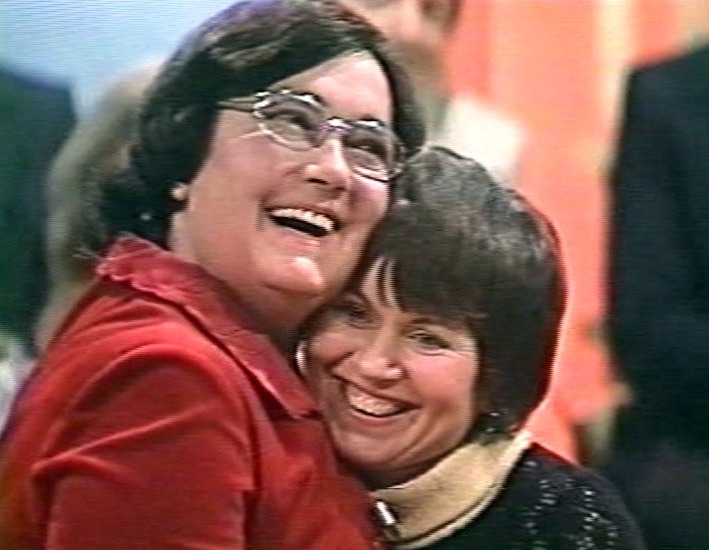

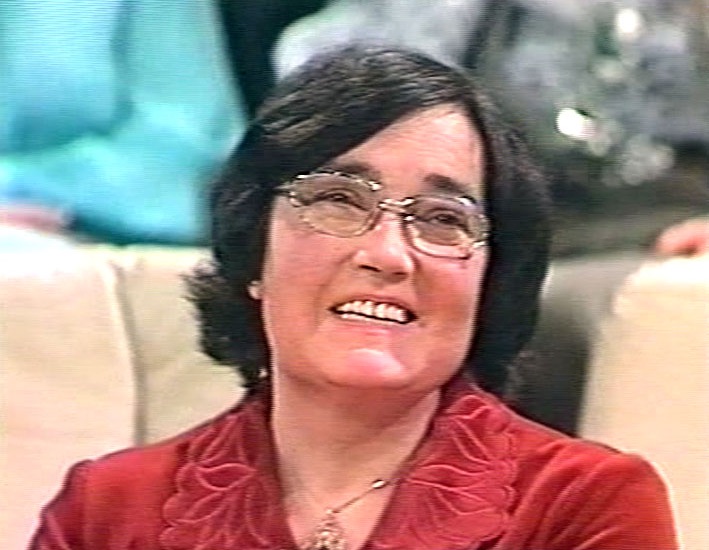
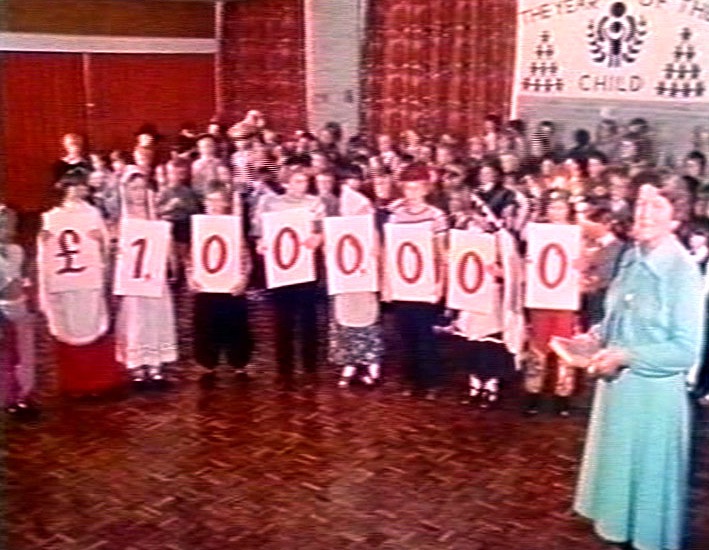
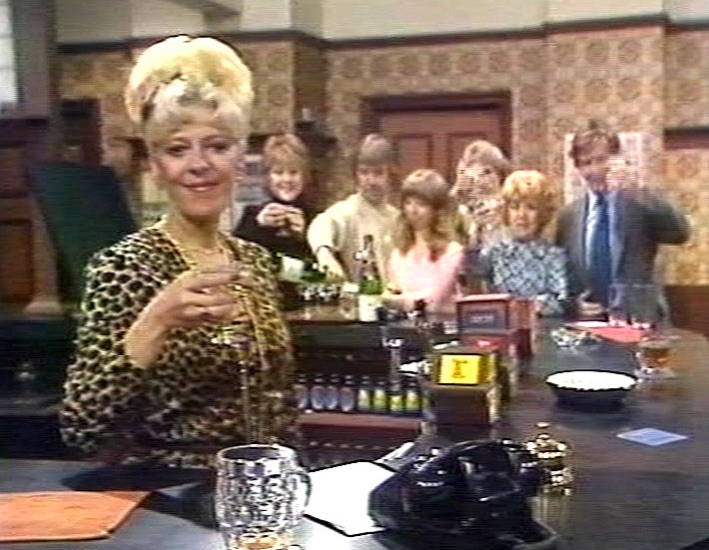
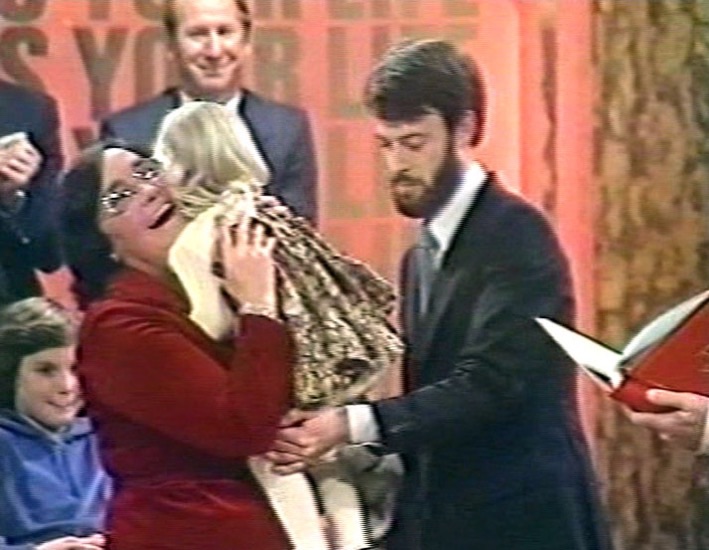
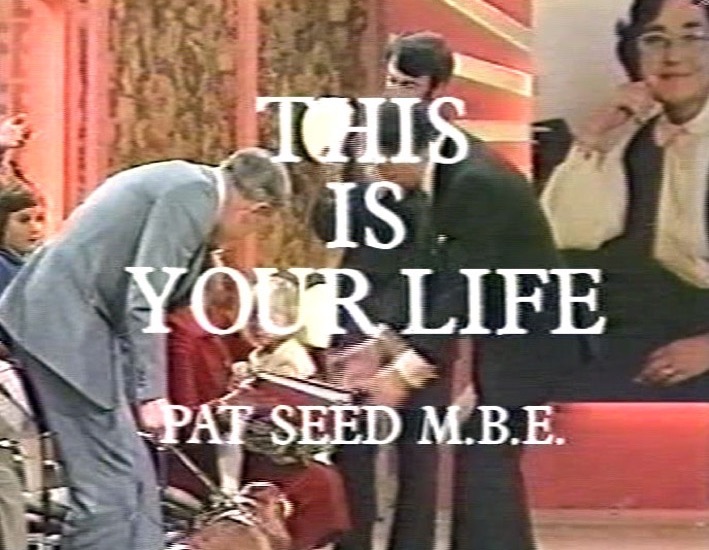
Screenshots of Pat Seed This Is Your Life
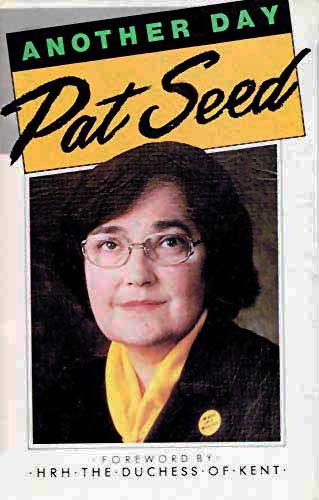
On 28th November, in company with five distinguished people, I received an Honorary Fellowship of Manchester Polytechnic. The other recipients were Dame Kathleen Ollerenshaw, Group Captain Leonard Cheshire, Mr Bobby Charlton, Mr Ralph Ruddock and Mr Simon Goldstone. I had been asked to give the speech of reply on behalf of the honorands.
After lunch the conferment ceremony was held and each of us in turn was presented to the Director, Sir Alec Smith, by one of the Polytechnic's lecturers. Miss Gisella Bergman kindly presented me. All of us wore gowns and mortar boards. As we were received, Sir Alec invested each of us with the orange and black hood, denoting our new status. In my speech of reply, l commented on the diversity of talents of the other five honorands and said that to use one's talents for one's own satisfaction gave fulfilment; when those talents were used for the benefit of other people, therein lay the true fulfilment. I ended by thanking Sir Alec and Manchester Polytechnic for the honour they paid us.
Rooms had been booked for us at the Midland Hotel, to which we retired for a rest before the dinner at the Polytechnic that evening. As Group Captain Cheshire and my husband and I were stepping into the car which was to take us to the dinner, my This Is Your Life programme went out on the screen. It had been recorded at the New Drury Lane Theatre just a week previously. Geoff and I couldn't watch it, being otherwise engaged, but friends later told me that Garstang was like a ghost town for that half hour, with most of the local population glued to their TV sets. Transmission was impaired somewhat in the North West of England and for just about the most unlikely reason you could think of. A recent sand storm in the Sahara Desert had blown tons of fine sand up into the atmosphere. By some freak of nature, the elements had chosen that evening to shower it on the North West. In the streets, parked cars were covered with layers of sand. The following morning, newspapers carried the story, for it was the kind of happening that probably won't occur again in a thousand years. Now I ask you, who else's programme would that happen to?
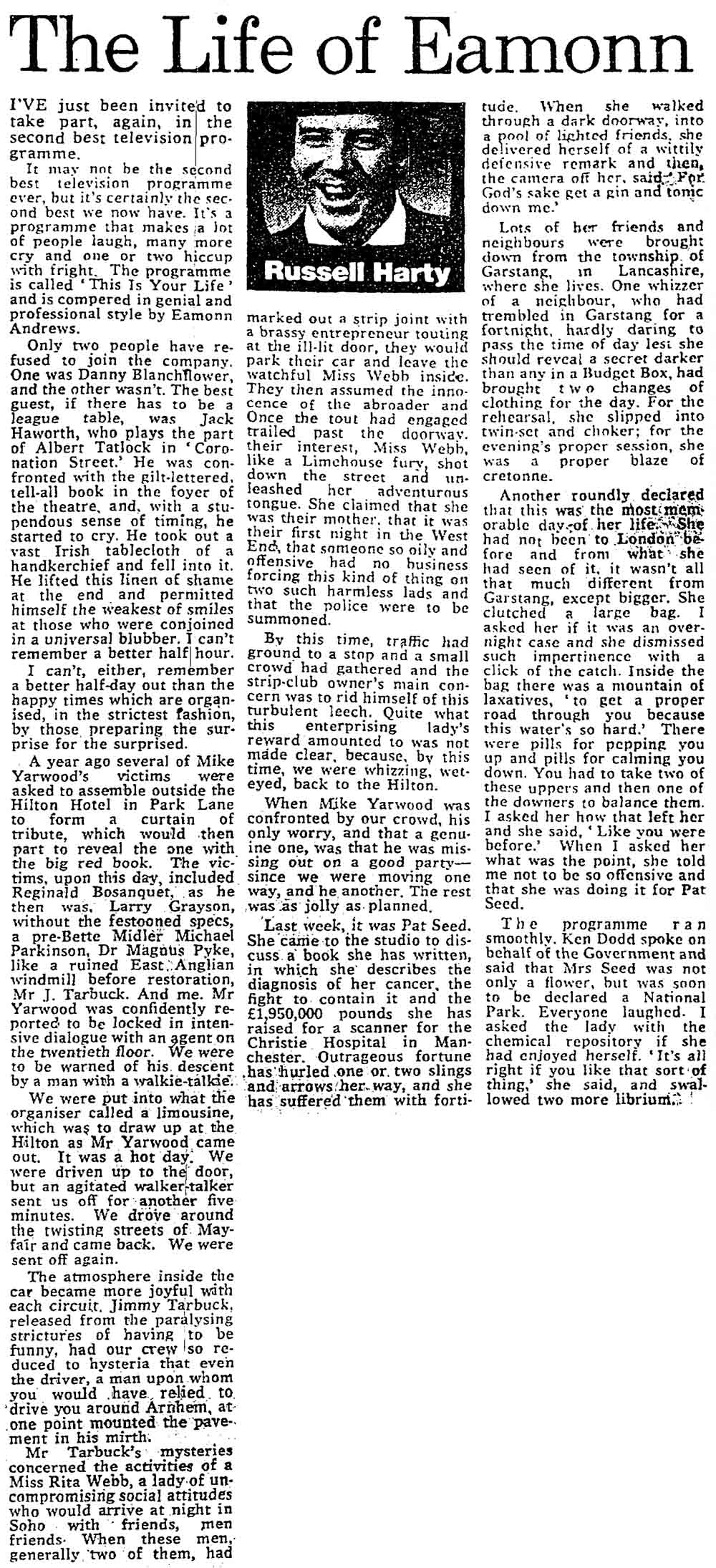
The Observer 2 December 1979
I'VE just been invited to take part, again, in the second best television programme.
It may not be the second best television programme ever, but it's certainly the second best we now have. It's a programme that makes a lot of people laugh, many more cry, and one or two hiccup with fright. The programme is called This Is Your Life and is compered in genial and professional style by Eamonn Andrews.
Last week, it was Pat Seed. She came to the studio to discuss a book she had written, in which she describes the diagnosis of her cancer, the fight to contain it and the £1,950,000 pounds she has raised for a scanner for the Christie Hospital in Manchester. Outrageous fortune has hurled one or two slings and arrows her way, and she has suffered them with fortitude. When she walked through a dark doorway, into a pool of lighted friends, she delivered herself of a wittily defensive remark and then, the camera off her, said: 'For God's sake get a gin and tonic down me.'
Lots of her friends and neighbours were brought down from the township of Garstang, in Lancashire, where she lives. One whizzer of a neighbour, who had trembled in Garstang for a fortnight, hardly daring to pass the time of day lest she should reveal a secret darker than any in a Budget Box, had brought two changes of clothing for the day. For the rehearsal, she slipped into twin-set and choker; for the evening's proper session, she was a proper blaze of cretonne.
Another roundly declared that this was the most memorable day of her life. She had not been to London before and from what she had seen of it, it wasn't all that different from Garstang, except bigger. She clutched a large bag. I asked her if it was an overnight case and she dismissed such impertinence with a click of the catch. Inside the bag there was a mountain of laxatives, 'to get a proper road through you because the water's so hard.' There were pills for pepping you up and pills for calming you down. You had to take two of these uppers and then one of the downers to balance them. I asked her how that left her and she said: 'Like you were before.' When I asked her what was the point, she told me not to be so offensive and that she was doing it for Pat Seed.
The programme ran smoothly. Ken Dodd spoke on behalf of the Government and said that Mrs Seed was not only a flower, but was soon to be declared a National Park. Everyone laughed. I asked the lady with the chemical repository if she had enjoyed herself. 'It's all right if you like that sort of thing,' she said, and swallowed two more Librium.
Series 20 subjects
Pat Seed | Fred Trueman | Noel Barber | Charles Aznavour | Eric Sykes | Andrew Sachs | Gerald Harper | Terry GriffithsPaddie O'Neil | George Martin | Geoff Capes | Roy Kinnear | Nyree Dawn Porter | Emlyn Hughes | Stewart Granger
Clare Francis | Jilly Cooper | Robin Cousins | Brian Bevan | Bill Beaumont | Mike Tetley
Alan Minter | Nat Jackley | Cathleen Nesbitt | Michael Aspel | Clive Lloyd